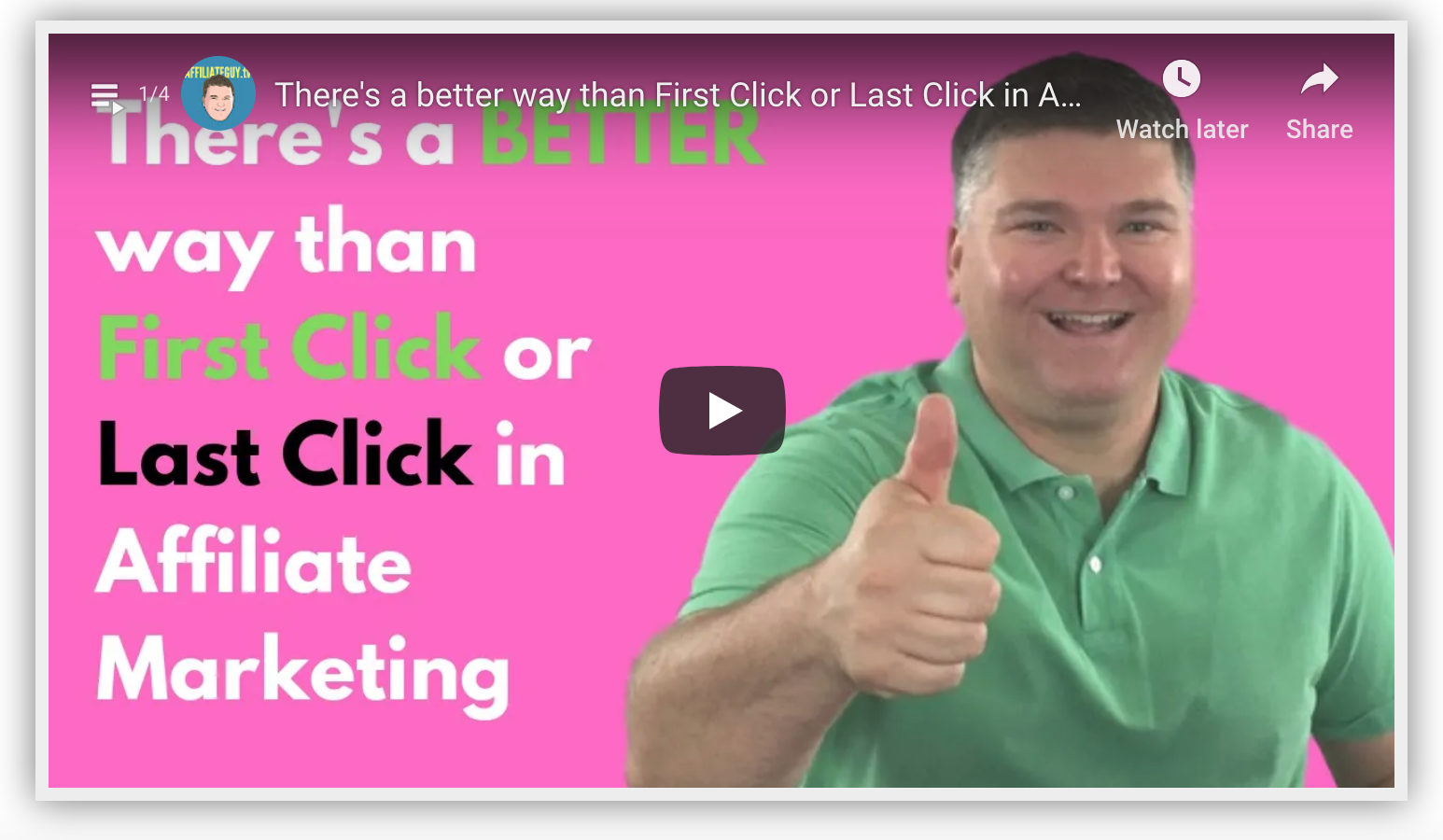The most difficult part of running an affiliate program is finding and recruiting affiliates. Where do you find the right affiliates and how do you get them to actually promote you? In today’s post, I’ll share how to dramatically increase the number and type of affiliates you recruit and how to get more of them to say “yes” to promote your offers.
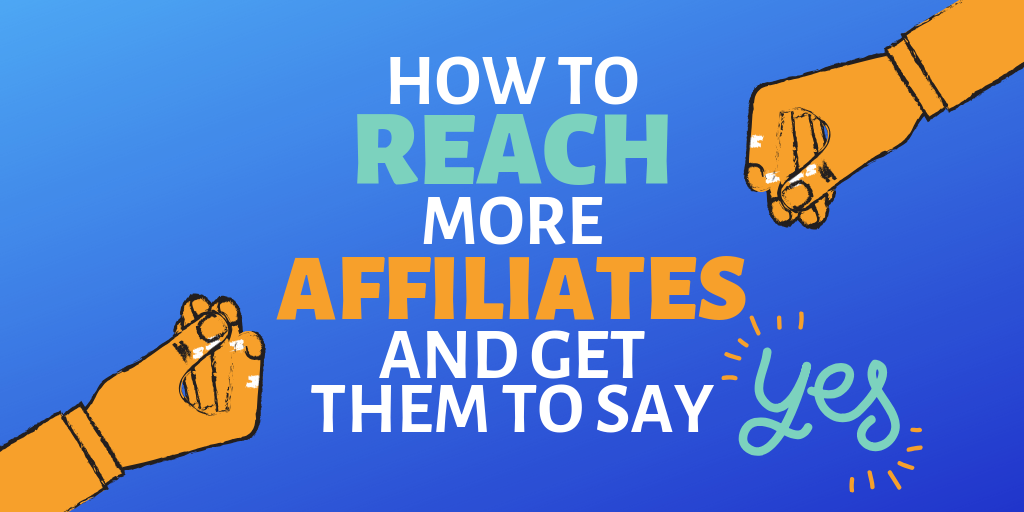
Every month I get countless requests from people wanting me to manage their affiliate programs and launches. But, when it comes right down to it, almost always, what they REALLY want is help with finding and recruiting affiliates.
I’ve taught extensively on how to find affiliates and how to recruit them using email here. I highly recommend reading that first…it covers the basics and I reveal my #1 affiliate recruiting email.
This post is different, though. It covers the next steps and shows you how to dramatically increase the number and type of affiliates you’re recruiting. I also share the single most important key to getting more of them to say “yes” when you ask them.
But before we get into that, if you haven’t, make sure you download my free report, Your First 100 Affiliates: 15 Places To Find Top Affiliates.
Ok, let’s talk about a few types of affiliates that you probably haven’t considered for your affiliate program, but should be.
To be clear, not all of these types of affiliates may work for your specific industry or niche, so if one doesn’t seem like a fit, just move onto the next one!
Co-Registration Affiliates
Co-registration affiliates are people that are promoting other products and then they promote your offer in conjunction with their offer. Typically this is done lead generation niches, but CAN be done with products for sale.
Here’s a quick overview of co-registration affiliates:
Here’s how it works:
Let’s say an affiliate is promoting homeowners insurance leads, for example. If it is a new home purchase, he might also include a checkbox to get more information on mortgages. If it’s not a new purchase, he might include an option to learn more about refinancing.
Those leads can then be sent to the mortgage company.
Or perhaps they are promoting someone else’s free training and then after the person opts in, there’s a one-click offer to optin for your webinar.
IMPORTANT NOTE: The key to using this type of affiliate is making sure that the people that are opting in for the initial offer are a good fit for your offer, otherwise it won’t work and you’ll end up with a bunch of junk leads.
Coupon Affiliates

These types of affiliates are exactly what they sound like…affiliates who promote deals and coupons to their audiences.
These are sites that cater to customers who are always looking for a discount or sale.
To be clear, if you don’t currently have coupons or discounts available for your products, I’m not saying you need to create coupons just to use this type of affiliate. Some products should never be discounted. Our courses, for example, are never discounted, as it cheapens the brand.
But if you DO have coupons or discounts, you definitely want to use these affiliates.
IMPORTANT NOTE: You want to make sure that these type of affiliates don’t “steal” the commissions from the original referring affiliates. It’s your job to ensure that BOTH affiliates get credit for the sale. This is a long and complicated issue that I address in detail in this video.
Loyalty Affiliates
Loyalty affiliates (often called “incentive affiliates”) can also be a very effective type of affiliate.
They’re called “loyalty” affiliates for a reason…the people they reach are very loyal to them.
Think of a site like Ebates, for example, where someone purchases a product and gets a $5 or $10 cash back incentive.
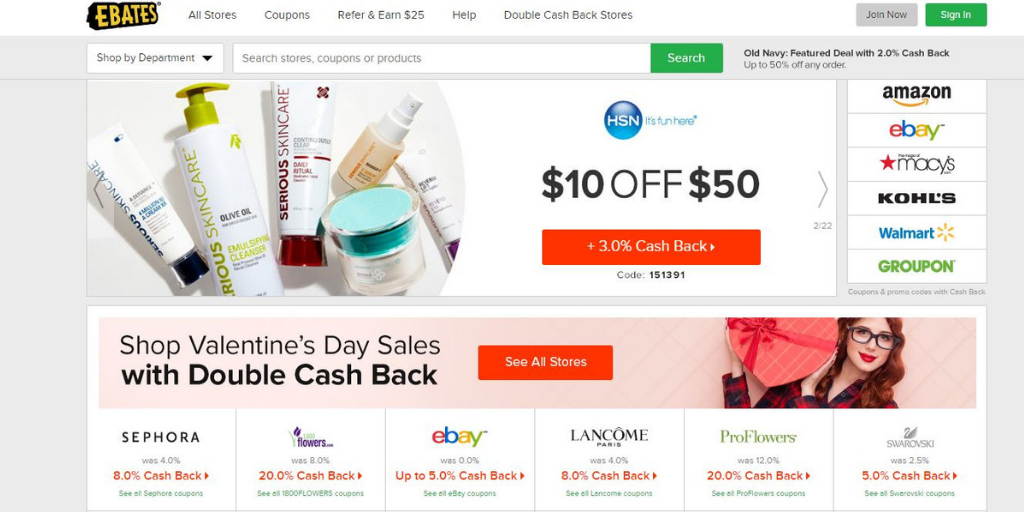
In this case, Ebates is the affiliate. They make money by encouraging loyal subscribers to purchase through them, with the reward being that the customer gets a percentage back.
Essentially the affiliate is taking part of their affiliate commission and giving it back to the customer as a cash back incentive.
WARNING: It’s important to monitor loyalty affiliates to make sure you are getting a positive ROI. And, similar to what I mentioned above about coupon affiliates, you have to be careful that these type of affiliates don’t steal the commission from the original referring affiliate. Don’t let these warnings scare you though as these types of affiliates can be extremely valuable.
Non-Profit Affiliates
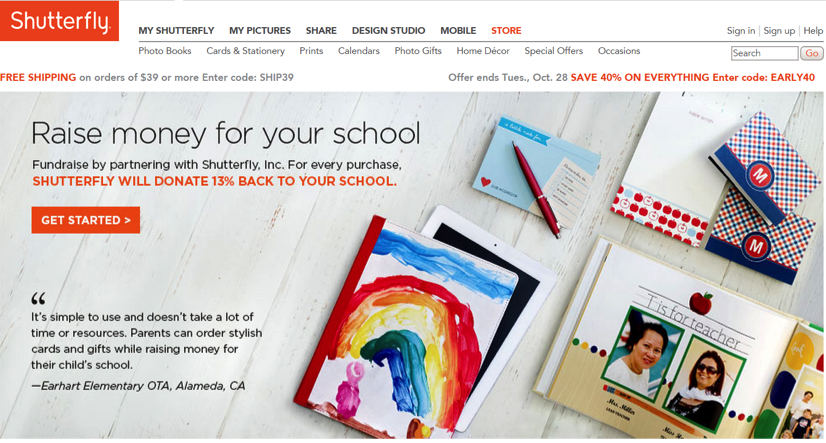
These are charitable organizations, parent-teacher organizations, etc. who use affiliate promotions as a fundraiser for their organization.
Essentially they tell their organization that a percentage of each purchase (their affiliate commission) is donated to the organization.
If you don’t think non-profits can be effective and profitable affiliates, just know that when I worked with Shutterfly’s affiliate program, we did more than $8 MILLION in sales just through non-profits. I’ll leave it at that. 🙂
I cover how non-profits can benefit from affiliate marketing in-depth in this video. If you are interested in working with non-profits, study how they benefit and use it and you’ll succeed with recruiting them.
Non-profits are great for getting your product in front of a captive (and usually slightly higher income) audience. They are also great if you have a commodity item (such as stationery,
PRO TIP: Make sure to give non-profit affiliates an enhanced commission. They don’t want to just be “affiliates.” They want to be special partners and know that you care about their success in raising money.
Pay-Per-Call Affiliates
Pay-per-call affiliates are marketers who drive inbound phone calls to you. They are compensated on a performance basis.
Logistically, you give each affiliate their own unique phone number or extension so you can track them properly. There are companies like Invoca that handle all the tech for this. I’ve used it extensively in the past and found it to be incredibly easy to manage and the results were outstanding!
Of course, if you don’t have a staff that can answer inbound calls, this type of affiliate would not work for you. But if you do, this can be very effective, because, let’s face it, if someone is calling, it’s because they want to call.
They don’t want to buy online, they want to actually talk to someone before buying.
In the past, I’ve even taken these calls myself. These are HOT leads and it’s worth a 3-5 minute call to process what could be a $500+ sale.
Setting campaigns up usually takes only a few minutes. Here’s a quick overview:
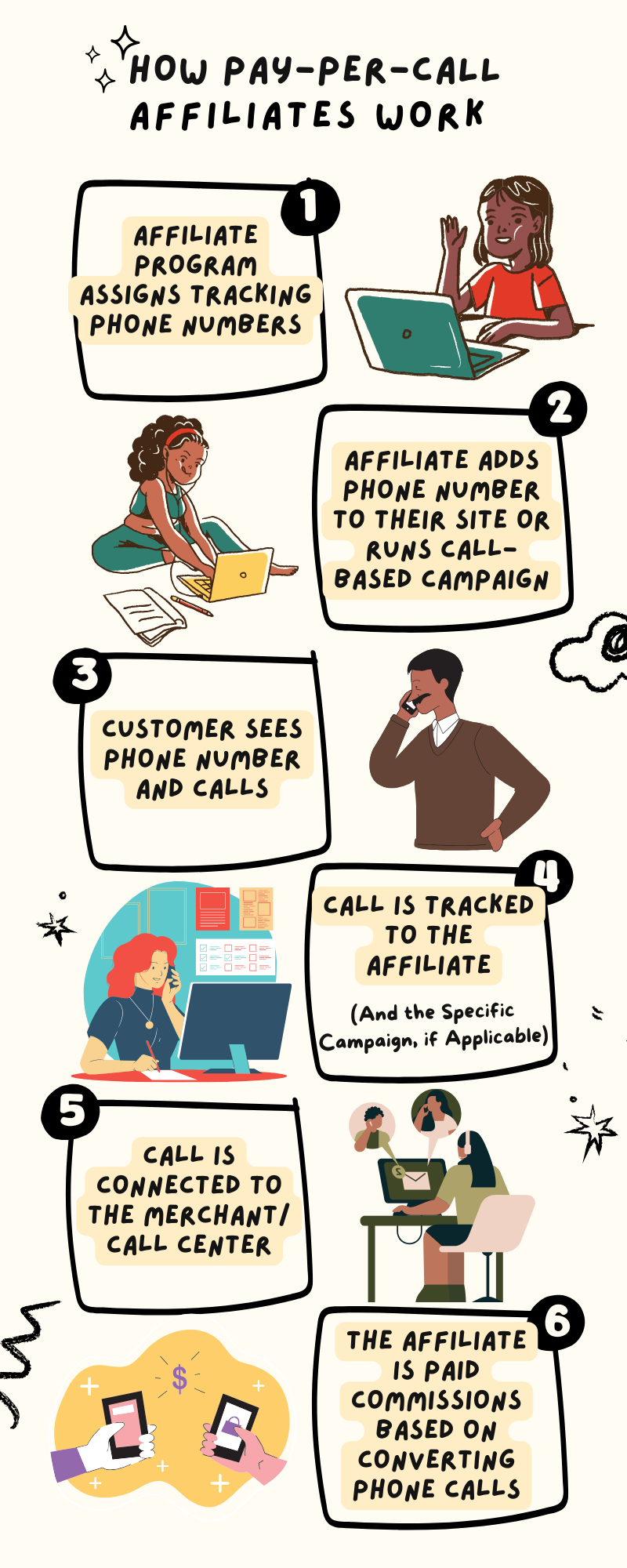
PRO TIP: If you use this type of affiliate, you will want to spot-check the calls to make sure that they are actually tracking correctly and that you’re not paying for sales that were not sent from the affiliate.
Remarketing/Retargeting Affiliates
Remarketing or retargeting is one of the most effective (and cheapest) forms of marketing out there. You target people who’ve already engaged with your brand in some way.
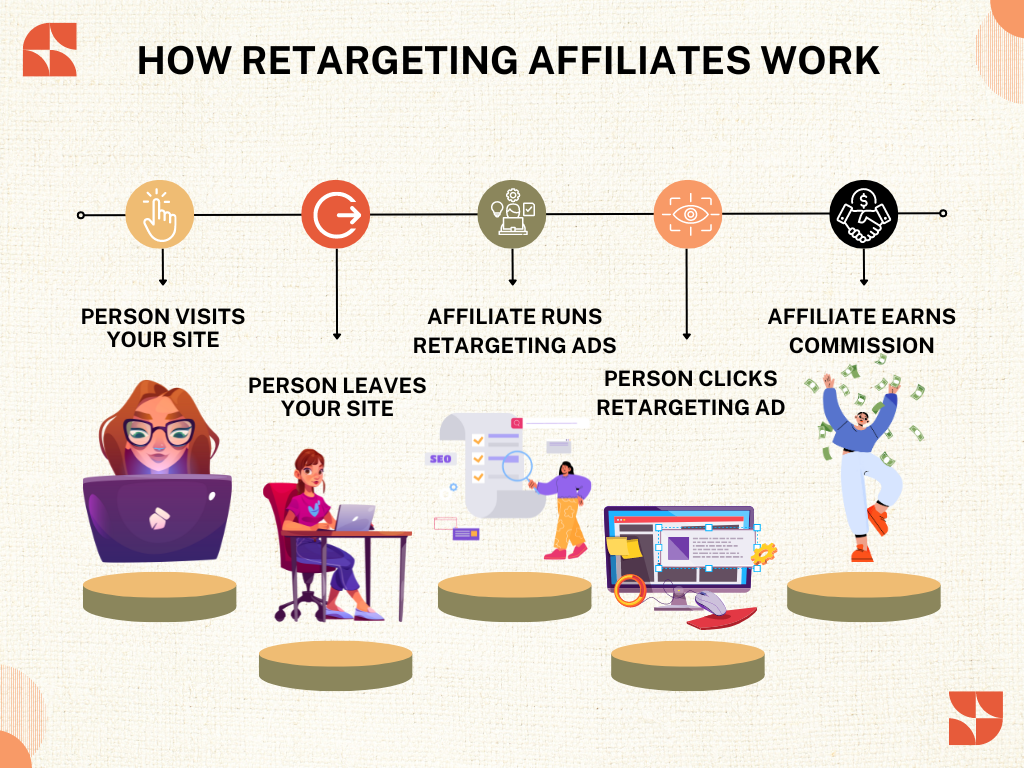
Working with affiliates who do this outsources your remarketing/retargeting to someone else and pays them on a commission only.
Ideally, you would handle your retargeting in house, but if you can’t for some reason (cost, time, etc)., this might be an option to consider.
You essentially pay them a commission to do the retargeting for you.
It’s a way that you can exponentially grow your retargeting efforts and perhaps reach many more potential customers.
PRO TIP: Make sure you negotiate the commission percentage. Normally, it should be somewhere between 1/5 and 1/3 of the normal affiliate commission. Remember, you are effectively handing them a highly targeted list of people to market to. Here’s how to determine your affiliate program’s commission percentage by the way.
Second Tier Affiliates
I’ve talked at length about the value of second-tier affiliates, and it’s something that we do often ourselves. In fact, it’s one of our largest profit centers in the company.
A second-tier affiliate is someone to whom you pay a smaller, “second-tier,” commission to for referring other affiliates.
So if I refer an affiliate to Company A, they pay me a commission on each sale that the affiliate makes. The standard second-tier rate depends on the niche and the products. But, generally, it is 1/5 to 1/4 of the regular commission, so:
Regular commission = 40% | 2nd-tier commission = 10%
Regular commission = 10% | 2nd tier commission = 2%

Here’s how it works:
Let’s say I refer 3 affiliates to you.
Affiliate A sells $10,000 worth of your product
Affiliate B sells $3,000
Affiliate C sells $2,000
The standard commission is 40% and the second-tier is 10%.
In this case, you would pay the 3 affiliates $6,000 total (40% of $15,000) and me $1,500 (10%).
This is one of the best ways to recruit new affiliates!
Sub-Affiliates
Sub-affiliates are affiliates who are a part of a sub-affiliate network. These are companies who have a network of affiliates who promote offers that the network brings to them.
It’s similar to second-tier affiliates, but not as transparent. The sub-affiliates do all the marketing and promotion to their individual lists, but the “master” affiliate gets all the credit. They then pay out the individual sub-affiliates from their earnings.
Sub-affiliate networks have a shady past…often well-deserved, since as a merchant, you don’t have any relationship or access to the sub-affiliates but would work with the network itself.

I recommend staying away from sub-affiliates if you don’t have a full-time affiliate manager in place to handle the logistics. They can be incredibly profitable, but require some hand holding and monitoring to be worth the effort.
Now that you have some ideas on different types of affiliates you should use, let’s talk about how to get them to actually say YES when you contact them.
How to Get Affiliates to Say Yes to Promoting You

First off, it’s important for you to understand that it’s typical to get about 5-20% of people you ask to say yes to promoting.
That might seem low, but it’s just the way it is. I’ve recruited hundreds of thousands of affiliates and I still don’t reach even 50% saying yes.
Ultimately, recruiting affiliates is a numbers game.
For my upcoming No Product No Problem launch, I have several hundred affiliates who have agreed to promote.
How do I have that many? I asked even more than that to promote. And if I want to add more affiliates, all I really have to do is ask even more people. It really is that simple.
BUT, there are a few things you can do to have an even greater impact and get more affiliates to say yes.
In their book, The small BIG, Steve Martin, Noah Goldstein and Robert Cialdini write:
“…the authors collected additional data to determine exactly why people have the strong tendency to underestimate the likelihood that a person will respond affirmatively to request for assistance. In brief, they found that the requesters tend to focus on the cost to the potential help provider in terms of time, effort, or money if he or she says yes, while giving less consideration than they should to the social costs in terms of difficulty, awkwardness or potential guilt, embarrassment, the potential help provider will experience if he or she says no.
The implications seem clear when trying to decide whether to make a request of someone. It’s important to recognize that you might be underestimating the likelihood of hearing ‘yes’. This underestimation, if left uncorrected, could therefore potentially stymie your productivity or the accomplishment of your goals.” (emphasis mine)
What does all that mean?
It means that we underestimate the likelihood that someone will say “yes” when we ask them something!
That’s exactly the experience that Vanderbilt student Michael Pollack had when he asked Billy Joel if he could play “New York State of Mind” on stage with him in 2013.
Watch what happened when Michael overcame his fear of hearing “no” and asked his idol if he could play with him:
THAT is the power of ASKING!
Odds are that YOU underestimate the likelihood that potential affiliates will say yes to promoting you.
But the reality is that they are more likely to say “yes” than you think.
I have had people agree to promote us that I NEVER expected to say yes. I’m talking people that have made us $50-100k! I NEVER thought they would say yes to promoting us…but they did.
Because I asked.
I get it…you’re scared of hearing “no.” It’s a fear that is deep inside most people…we don’t like hearing no.

Whether it’s my 3-year old son, Giovanni or a salesman who’s been selling for 40+ years, NO ONE likes to be told no.
We don’t like to be rejected.
It’s easier to never find out than to be rejected.
How To Get Through Your Fear of Asking Affiliates
You’ve probably heard the Mark Twain quote:
‘Courage is not the lack of fear. It is acting in spite of it.’
The way to get through your fear of hearing “no” is simply to hear more no’s.
It’s as simple and as hard as that.
You act, even though you are afraid of hearing no. You get through your fear of hearing “no” be facing it head on and asking more people.

If you ask more people you will hear more no’s…but you will ALSO hear more yes’s.
It’s also important to realize that when someone tells you “no” to promoting your product or offer, most times, it isn’t personal in any way.
It might not fit into their promotional calendar. Or they might not be promoting ANY affiliate offers right now. Or it could just be that your product isn’t a good fit for them.
Usually, when someone says no to promoting our products, they are VERY apologetic about their answer and often they even THANK me for asking them.
The number of people who are rude or upset is minimal.
Use the ASK Formula When Approaching Affiliates
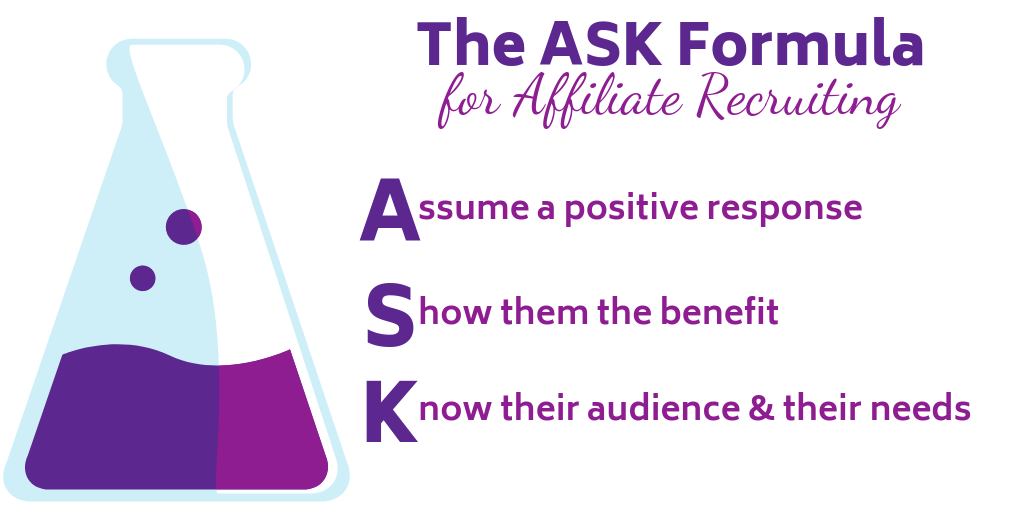
When asking affiliates to promote your product or launch, I recommend using my 3-part ASK formula (not to be confused with Ryan Levesque’s Ask Method…which I also recommend).
I’m not going to go into extreme detail on each part of the ASK formula, because I wrote about it in-depth in this post, but I will give you a quick overview.
A – Assume a positive response
It all starts in your mind.
Before you even ASK someone to promote your launch you need to have confidence.
Confidence that the product or offer is a good fit for their audience. Confidence that it will benefit their audience, and by extension, benefit them.
Confidence that they will say yes (remember, you’re likely underestimating that possibility!).
Approach the ask assuming a positive response. Tell yourself the reasons that they will say yes, not all the reasons that they might say no!
S – Show them the benefit
Why should the person promote your product or offer?
It’s obvious what the benefit is to you…but what is the benefit to them?
Will it help them serve their audience?
Will it fill a gap in what they teach?
Will it provide revenue for their business?
How about an opportunity to connect with other influencers that are promoting your launch?
Before reaching out to potential affiliates, make sure you take time to think about and articulate the benefits to them and their audiences.

K – Know their audience and their needs
Have you ever received an email from someone who obviously knew NOTHING about your audience or industry?
What they said and how they said it made it abundantly clear that they hadn’t taken ANY time to understand who your audience is or what motivates them.
How likely were you to take the relationship further?
Probably not very likely.
But if someone emails you and it’s obvious they have an understanding of your audience and clearly articulate why their product or service will help your audience achieve their goals, there’s a much higher likelihood that you’ll want to develop that relationship!
Tying It All Together
When you ask more and different types of affiliates to promote your products and launches using the 3-part ASK formula the results will be astounding!
Of course, none of the things I mentioned above 100% guarantee that every single affiliate you approach will say yes.
That just isn’t reasonable, but I CAN guarantee that by applying these strategies you will get MORE affiliates to say yes.
Now go make it happen!
Questions?
Text me anytime at (260) 217-4619.
Or…check out some of my free reports to help you get on the right track:
 |
 |
 |
 |
 |
 |
 |
 |
 |
